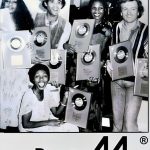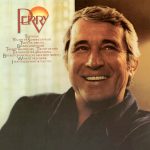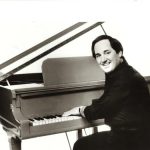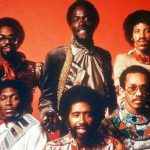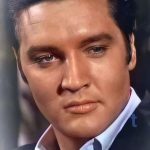Merle Haggard – If I Could Only Fly


Merle Haggard, the legendary “Okie from Muskogee,” was a country music iconoclast. Known for his baritone drawl, unflinching lyrics about working-class struggles, and a touch of outlaw swagger, Haggard carved a unique path through the genre’s landscape. In 1978, amidst a string of chart-topping hits, Haggard released a song that defied easy categorization: “If I Could Only Fly.”
Credited solely to Haggard himself, the song appeared on the album “Serving 190 Proof”, produced by the seasoned Lenny Kaufman. While the album itself wasn’t a commercial juggernaut compared to some of Haggard’s other releases, “If I Could Only Fly” resonated deeply with a segment of his audience. It never reached the top of the Billboard Hot Country Songs chart, but it became a staple on Haggard’s live setlists, a testament to its emotional power.
On the surface, “If I Could Only Fly” appears to be a straightforward country ballad. The instrumentation leans on the traditional: a bed of steady acoustic guitar strumming, a mournful pedal steel guitar weaving its signature cry, and Haggard’s unmistakable vocals taking center stage. But beneath the familiar sonic landscape lies a profound yearning for escape. The lyrics paint a picture of a weary soul trapped in a dead-end situation, longing for a way out.
The titular line, “If I could only fly,” becomes a powerful metaphor for this desire. It’s not just a physical escape Haggard seeks, but an emotional one as well. He yearns to transcend the limitations of his circumstances, to break free from the cycle of loneliness and despair. This theme resonated with many of Haggard’s fans who identified with the struggles of blue-collar life and the yearning for a better tomorrow.
However, “If I Could Only Fly” isn’t simply a song of despair. There’s a glimmer of hope woven into the fabric of the ballad. The protagonist’s desire to escape is intertwined with a longing for connection. He expresses a wish to take his significant other with him, singing, “Maybe we could somehow get away.” This hint of shared yearning adds an emotional layer to the song, suggesting that perhaps escape isn’t just about running away, but about finding solace and companionship in the face of adversity.
“If I Could Only Fly” stands as a fascinating example of Merle Haggard’s ability to imbue traditional country music with a depth of emotion and nuance. It’s a song that speaks to the universal human desire for freedom and connection, a desire that resonates across generations and social divides. Though it may not have been a chart-topping hit, “If I Could Only Fly” remains a powerful testament to Haggard’s songwriting prowess and his enduring legacy as a voice for the working class.



